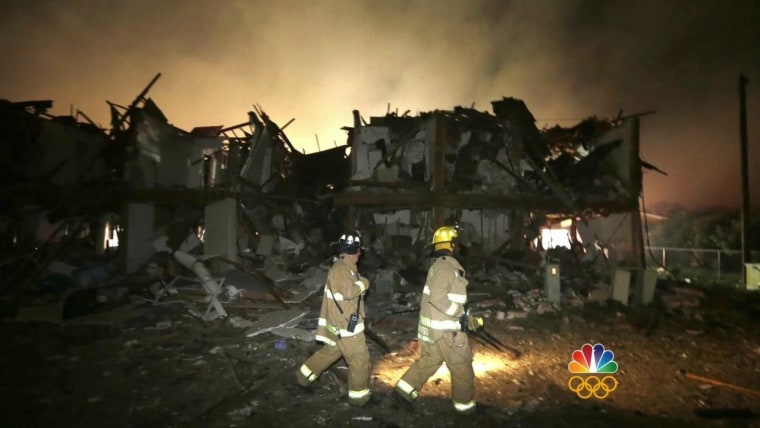About 60,000 pounds of a chemical used as both a fertilizer and an explosive is missing after likely disappearing during a rail trip from Wyoming to California last month, according to federal records.
A rail car carrying ammonium nitrate left a plant operated by explosives manufacturer Dyno Nobel in Cheyenne, Wyoming, on April 12, according to an incident report filed by a representative of the company with the National Response Center on May 10.
The report states that the chemical was released “due to an unknown cause,” and that it was discovered missing after the rail car arrived in Saltdale, California, an unincorporated community more than 1,000 miles from Cheyenne.
At the time of the report, the car was empty and on its way back to Wyoming, according to the company.
Ammonium nitrate has been a key ingredient used in both terror attacks and fatal accidents.
At least 581 people were killed in 1947 when more than 2,000 tons of the chemical exploded on a cargo ship that had docked at a port in Texas City, Texas. The same year, in Brest, France, a Norwegian ship that contained about 3,000 tons of ammonium nitrate exploded, leading to 29 deaths.
It was also used in a 1970 bombing on the University of Wisconsin–Madison campus that led to one death and several injuries, and in the 1995 Oklahoma City bombing, which killed 168 people.
In 2013, ammonium nitrate was the cause of an explosion at a fertilizer plant in West, Texas, killing 15 people, injuring 200 and wiping out hundreds of homes. Federal officials later found the blast was a “criminal act.”
In 2020, it was the source of a colossal explosion in Beirut, Lebanon, when more than 2,700 tons of ammonium nitrate detonated, killing more than 200 people and injuring thousands.
“It’s a very common chemical that anybody that has used fertilizer has dealt with routinely and doesn’t think anything about it,” said Nathan Lewis, a chemistry professor at the California Institute of Technology, told NBC News following the Beirut explosion.
“Just give it a little fuel and you’re asking for trouble, and that’s what apparently happened,” Lewis said of the incident in Lebanon.
But Kristen South, a spokesperson for Union Pacific, the rail company that was transporting the chemical, said in a statement that the recent disappearance of the chemical should not threaten the public.
“The fertilizer is designed for ground application and quick soil absorption. If the loss resulted from a railcar leak over the course of transportation from origin to destination, the release should pose no risk to public health or the environment,” South said, adding that the company’s investigation into the incident “is in its early stages.”
“At this point in the investigation, we do not believe there is any criminal or malicious activity involved,” South added.
A representative for Dyno Nobel told KQED, the California news outlet that first reported the incident, that company representatives believe the chemical leaked through the rail car while in transit.
“The railcar was sealed when it left the Cheyenne facility, and the seals were still intact when it arrived in Saltdale. The initial assessment is that a leak through the bottom gate on the railcar may have developed in transit,” the spokesperson told KQED.
A Federal Railroad Administration representative said that its ongoing investigation suggests one of the car gates was not properly closed, according to the news outlet.
Representatives for Dyno Nobel, the FRA and the California Public Utilities Commission did not respond to requests for comment from NBC News sent Sunday afternoon.
Colin Sheeley and Daniella Silva contributed.







